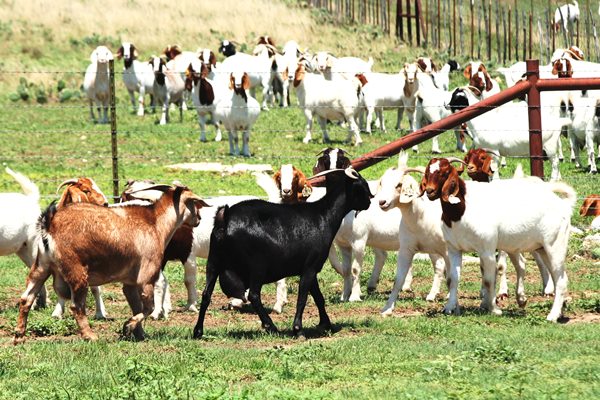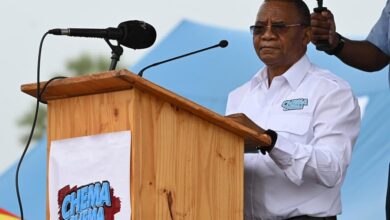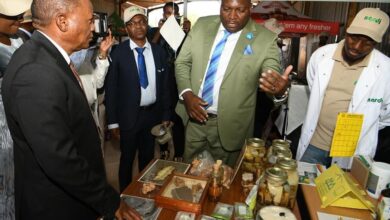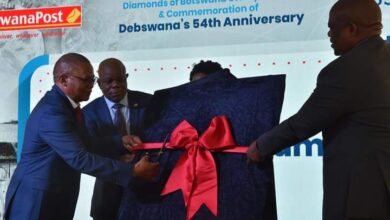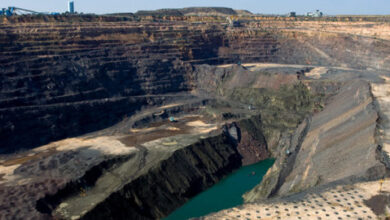Chengeta’s Farming Initiatives
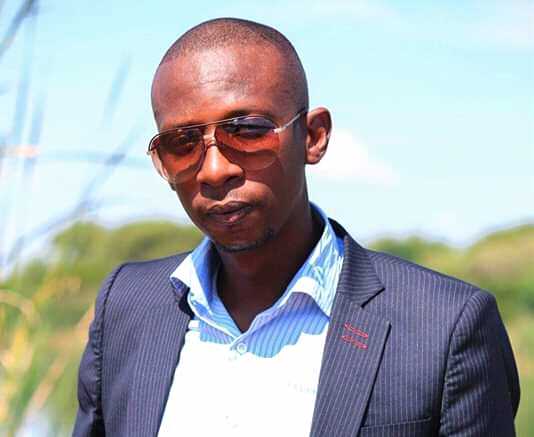
As one English expression says, “After a storm comes a sunshine” Botswana youth has experienced that and benefited from it firsthand. While still crying over spilt milk owing to Corona Virus Disease- economic strain, a good Samaritan came the way of Botswana youth to the rescue.
A Good Samaritan
A local businessman by the name Ndinaye Chengeta is the rescuer and the people’s hero after stretching out a helping hand to Batswana who wish to venture into farming but do not have land and water. Chengeta is the owner and Chief Executive Officer (CEO) of Chengeta’s Boy Production (CBP), a reputable media company that produced over fifty (50) episodes for a local television soapie Mareledi; he is also the owner of Chengeta Farms which among other services is well known for providing farming units for rentals. The farm is located between Molepolole and Thebephatshwa. The former school teacher is also a counselor and a relationship advisor.
The Initiative
It all started in July after the first national lockdown, upon the realization that many companies and businesses were collapsing and people especially the youth were frustrated. As his solution to the status quo Chengeta decided to come up with a solution which was in form of a business that would run even in an event of a lockdown. The same scheme was supposed to be affordable to many, so as to address the issue of the then funding challenge and at the same time solve the problem of unemployment.
Through his Facebook account, Chengeta reached out and pitched his plan, and to his surprise many more than he had imagined were interested. “When it got pitched the response was out of the charts. I was shocked too because the truth is, when we started this initiative I had spared ten (10) kraals to be used by Batswana but the response was so overwhelming that we had to build forty (40) more kraals to be able to accommodate all the projects” he exclaimed. The initiative was to venture into goat farming through crowdfunding.
Mr. Chengeta said the goat rearing initiative was mainly aimed at helping many Batswana to realize their dreams on agricultural issues and the response had been amazing.
The Strategy and Structure
The Ministry of Lands Management, Water and Sanitation Services has just recently revealed that the average waiting period for land is thirteen (13) years for tribal land and sixteen (16) years for state land with the longest time being thirty (30) years.
With the abovesaid, it is difficult to venture into farming business, not anymore though! bearing that in mind, Chengeta came up with a plan that would address that problem as well. In an effort to encourage and give Batswana hope he pledged his kraals, water and herding services for free to those participating in the initiative. In turn the participants were supposed to contribute one thousand pula (BWP1000.00) each for a period of three (3) months- meaning each participant contributed three thousand pula (BWP3000.00) after the mentioned period.
The contributors would then be put into thirty (30) groups consisting of twenty (20) people each. The members would then contribute for the months of July, August and September then October the initiative will kickstart. Each group would make up a sum of sixty thousand pula (BWP60 000.00) then collectively the 30 groups or six-hundred (600) members would make a sum of One Million and eight-hundred thousand pula (BWP1 800 000.00). The money will be used to procure goats, feeds and medicine which will sustain for a period of twelve (12) months or one (1) year.
After a year, the farmers would decide what to do with the initiative; some could opt for selling the goats and sharing the profits, while some out of interest could opt to start farming and go into profitable agri-business.
Economic impact
Mr. Chengeta pointed out that his desire was to see Batswana having a being bigger players in the agricultural sector; raising productivity in agriculture sector and penetrating the market, which is of paramount importance and can bring quick earnings, such as local self-sufficiency, job creation, innovation and adoption of new technologies. He added that he found out that small stock is in short supply though high in demand, hence small stock production had quick returns and could potentially add significant value to the economy of the country.
He further acknowledged the importance of partnership in doing business saying it is a recipe for sustainable economic development as people are sure to be successful because many people are working towards a similar goal of making sure their investment does not go to waste, “the good thing about the goat initiative is that everyone is an owner, it is like having shares” he said.
As there will be a lot of them, the groups would be able to attract and satisfy bigger markets like chain stores and government entities like Botswana Defense Force, Botswana Prisons Services, Hospitals and Schools- the markets they otherwise wouldn’t be able to satisfy individually.
Other agricultural activities that would be carried out to boost the credibility as well as to avail the farm for publicity would be expos where they will showcase their produce as they are planning onto adding other initiatives like poultry, sheep and piggery soon.
Other Initiatives
As of the 5th of October, Mr. Chengeta gave the update that of over 600 participants, they managed to collect over 1.8 million which will be used to procure goats from Namibia because locally farmers do not have the capacity to supply that much. Now seeing that the goat initiative is successful and almost done with, Mr. Chengeta introduced the poultry initiative which will later be followed by the sheep initiative and later pig initiative.
The poultry Initiative contributions has already been started at the beginning of October, and by December the last round of contribution installments will be paid. The plan is to contribute BWP1000.00 for October and November, then BWP500.00 for December; making the total contribution per person to be two thousand and five hundred pula (BWP2500.00). Once again there will be groups of 20 people, meaning each group will make up a total of fifty thousand pula (BWP50 000.00), similarly the total sum will be used to procure layer chickens, feeds and medicine for 12 months.
The project has since attracted other specialists; Mr. Jackson Bango who runs an excavation company volunteered to construct a seventy by seventy, three metre deep dam and also supply truckloads of sand and concrete for developments, while on the other hand over twenty students and graduates of Botswana University of Agriculture and Natural Resources (BUAN) have joined the initiative and brought the technical expertise on board.
